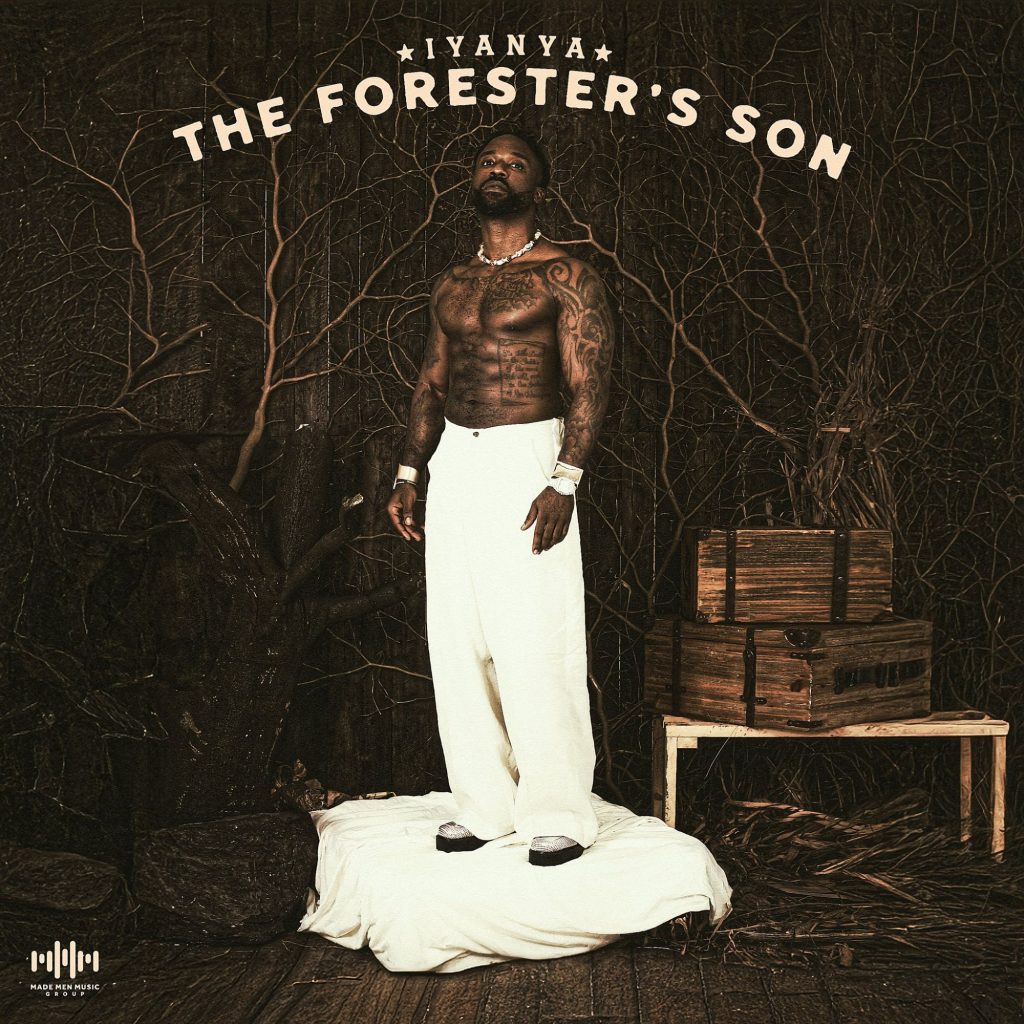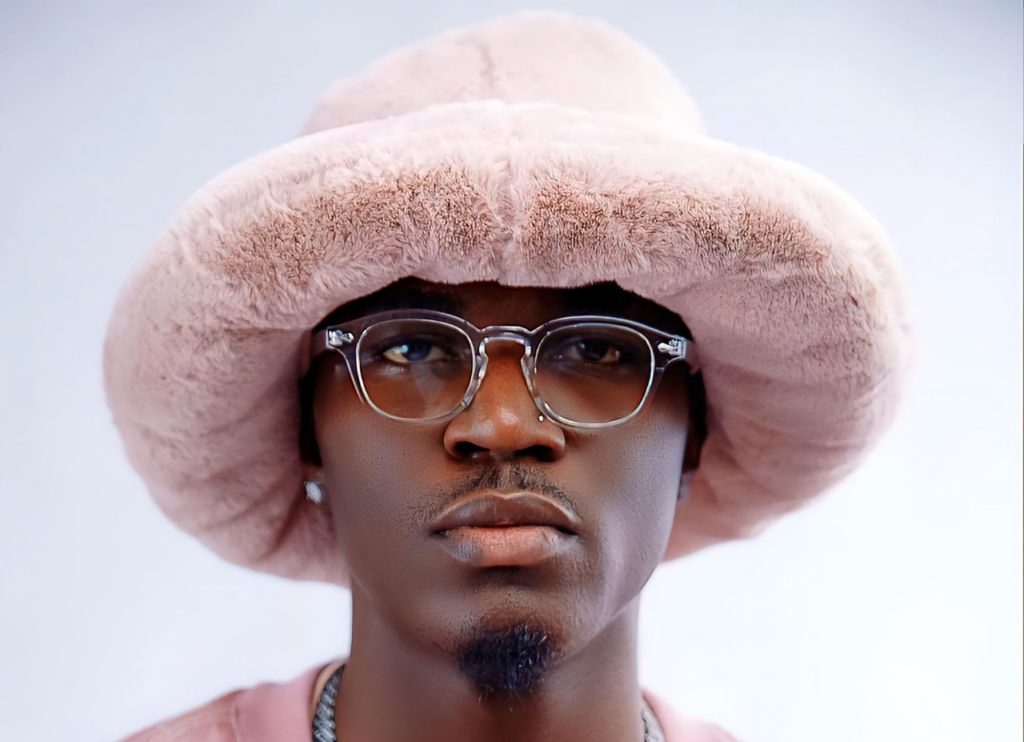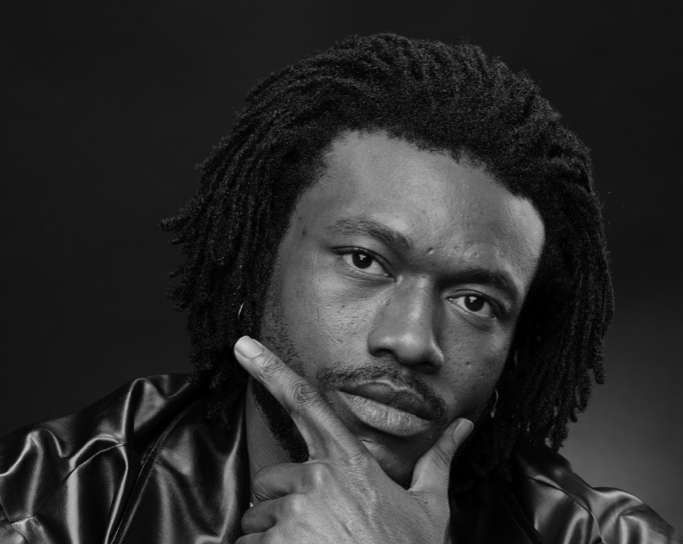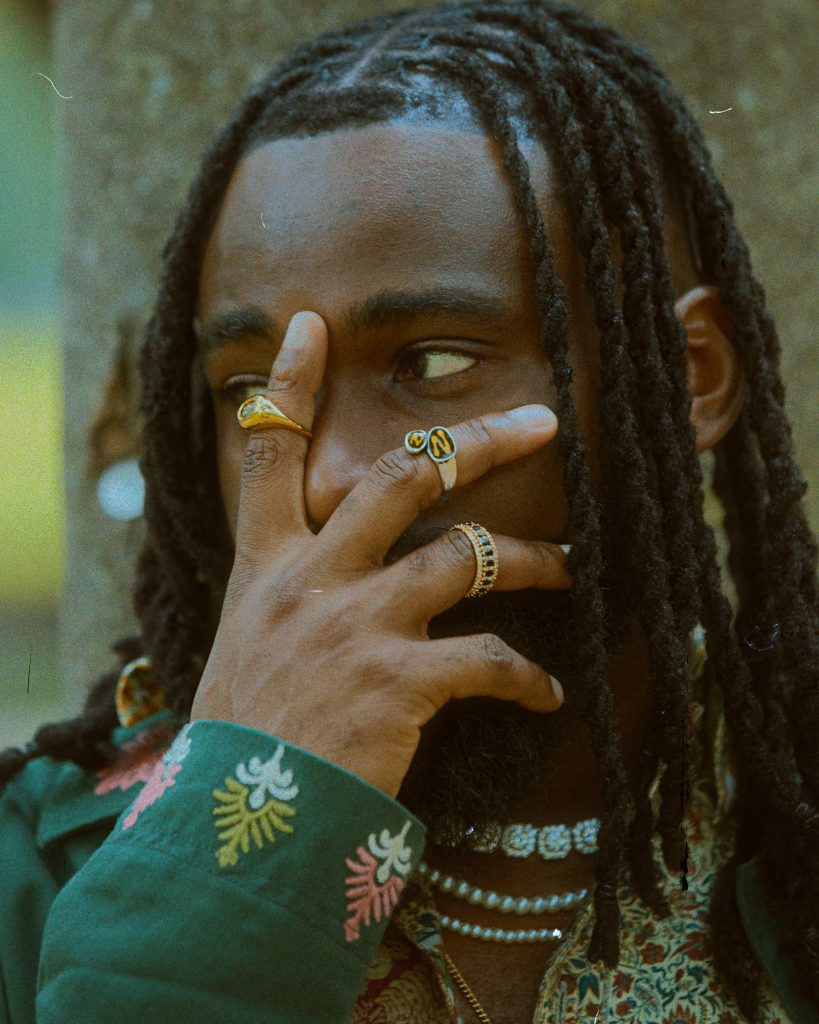“I think it’s a mistake to pit Hip-Hop/Rap in Nigeria against the Afrobeats/Afro-Pop/Afrofusion scene. Naturally, Afrobeats is the most popular genre in the country because it’s deeply rooted in our culture. Hip-Hop, on the other hand, is a borrowed culture. However, there is a mainstream audience for rap in Nigeria. Many rappers who have found ways to tell stories true to our roots have enjoyed mainstream success.”
– FEMI JR ON THE SENTIMENT OF HIP-HOP/RAP BEING A NICHE, UNDERVALUED GENRE IN NIGERIA.
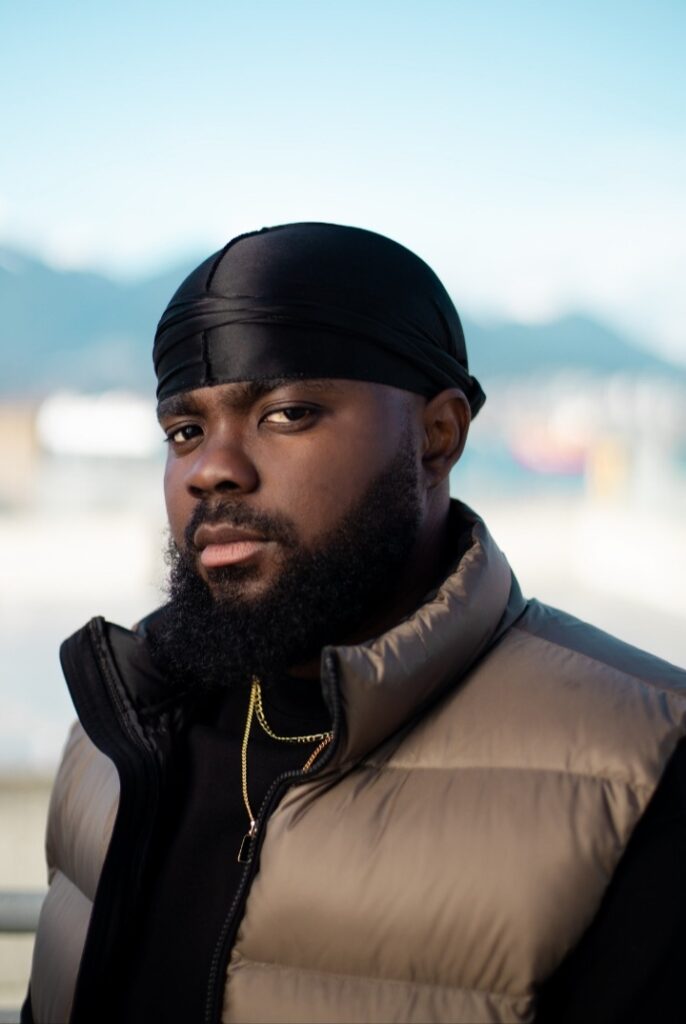
In matters of style, fluidity is key. This is particularly imperative for artistes in a constantly changing terrain, to keep in touch with consumers. While one must not remain on the drawing board for too long, periodic revisits help revitalize creativity. Femi JR, a Nigerian Hip-Hop artiste with four EPs and an upcoming album, is well attuned to these truisms.
Ahead of his debut LP, Femi JR has released the singles, ‘Love‘ and ‘ÓMÀSHE‘ in February and May 2024 respectively. In an exclusive interview with Album Talks, Femi JR sheds some light on his early influences and his artistic process. He also goes into detail about his latest single, ‘ÓMÀSHE‘ and shares his thoughts about the perception of Nigerian Hip-Hop.
A-T: Artistically, how has the year 2024 been for you thus far?
FEMI JR: Artistically, 2024 has been quite revealing for me. I’ve been pushing my creativity to new heights. In previous years, promoting my music was my least favorite part. I’ve always loved writing, delivering, and creating music. This year, however, I’ve started channeling that same creativity into all aspects of my music, including roll-outs, visuals, content, and even the captions I put on posts. I’ve found that the key to enjoying every part of my music career is to be creative and have fun with it all. So far, it’s been paying off—promo doesn’t feel like a headache anymore; it just requires the same intentionality and creativity as making music.
Additionally, I’ve been doing a lot of studying—analyzing fans and the industry to understand what people gravitate towards, what type of content they engage with, and the best times to post on different platforms. I’ve also been observing other artistes’ release strategies to get a sense of the industry’s direction. Overall, I’ve immersed myself in my music more deeply than ever before. This year has been about fully embracing and enjoying every aspect of my craft.
A-T: That’s very exciting to hear. Narrowing things down, the tonal shift between your last single, ‘Love’ and your latest single, “ÓMÀSHE” is quite telling. What inspired “ÓMÀSHE”, and what was your mind state at the time of recording?
FEMI JR: Yes, the tonal shift between ‘LOVE’ and “ÓMÀSHE” is definitely noticeable. Interestingly, the word “ÓMÀSHE” has been on my mind for nearly two years. Since 2022, I’ve recorded several versions of the hook as voice notes, experimenting with Trap beats, Afrobeats, and keeping it as an idea for the future. Being a big fan of Drill music, which I’ve incorporated into recent songs like “T.B.H,” I knew I needed a Drill track on the album after my producer, Wavskinny, and I created “Love” and other tracks for the project.
I initially recorded a version of the hook on a reference Drill beat and sent it to Wavskinny to see if he could create something more African and distinct. When he sent the beat back, it didn’t quite fit with the hook I had in mind, so I moved on. A month later, I revisited it with fresh ears, wrote the final hook and verse, and the rest is history.
I understand that some people might find the shift from “Love” to “ÓMÀSHE” surprising, but both songs reflect my true artistic self. Sometimes, I’m serious and I want to tell stories with real messages, and other times I just want to have fun and avoid serious topics. This project excites me because it showcases the full spectrum of my personality. “Love” was intended as a grand introduction to the album, while “ÓMÀSHE” aims to capture the growing interest in Afro-Drill in Nigeria. Both songs represent me authentically, and I’m confident that listeners will understand the full picture when they hear the entire album, “PEACE & LOVE.”

A-T: Well said, and we trust that it would be the outcome. To widen the tent, who are the upcoming acts in the industry you admire, especially in the Hip-Hop/Rap sphere?
FEMI JR: Currently, in the industry, Ayo Maff is the recent name that comes to mind. In the Hip-Hop space, Priesst is another artist I admire. He seems to be gaining some traction, which I love to see. Because I’ve been deeply focused on my own project for a while, I haven’t had much time to enjoy other artistes’ work purely for pleasure. Even when I do listen or watch, it’s often to study how they move and to see how I can improve my own artistry through their example. However, these two guys, Ayo Maff and Priesst, have really impressed me with what they’re doing so far.
A-T: Very well then. What sparked your interest in Hip-Hop/Rap?
FEMI JR: The simplest answer to what sparked my interest in Hip-Hop/Rap is Nas. My initial introduction to music came from my dad, who used to play Ebenezer Obey, and I quickly gravitated towards it. Obey is one of my all-time favorite artistes—on any given day, it’s a toss-up between him and J. Cole.
As for Hip-Hop, I think I was about 12 or 13 when I first started exploring music on my own. I saw “One Mic” by Nas on MTV, and that led me to research more of his songs. I was hooked and have loved Rap ever since. Interestingly, I didn’t start rapping myself until about eight years later, but that’s a story for another day.
A-T: Nas is undoubtedly a solid reference point in Hip-Hop. It’s good to see that you eventually picked up the genre, too. That being said, how did your distinct urban upbringing in Ibadan shape your artistry?
FEMI JR: Ibadan shaped my artistry in several profound ways. One of the most notable influences is my command of the Yoruba language. Growing up in Ibadan, where speaking Yoruba was heavily promoted, I became quite fluent. In Ibadan, as you reach a certain age and start moving around on your own, Yoruba becomes essential for navigating any environment.
I grew up admiring Ibadan for its originality and the unique Yoruba dialect spoken there. Even when neighboring cities like Lagos mocked this dialect, Ibadan embraced it with pride. This taught me to stay true to myself. I find that my messages carry more weight when delivered in Yoruba because it connects me to my roots and resonates deeply with the people I want to reach.
Additionally, Ibadan’s distinct culture and unwavering authenticity have significantly influenced my artistic voice. I’m currently working on a project after “PEACE & LOVE,” which will delve deeper into my upbringing in Ibadan and how it has shaped who I am today.
A-T: Surely, there will more of these infusions in your records. On a broader level, however, what are your non-negotiables when it comes to crafting a song? Put differently, what metrics do you consider the most important—be it songwriting, melodies, production or promotion?
FEMI JR: For the longest time, songwriting has been at the top of my list. I love telling stories with my songs, and the key to that is strong songwriting. I don’t mind how long it takes to complete the writing as long as I can clearly convey the theme of the song. Nas was my introduction to rap, and then J. Cole emerged as my GOAT artiste. These artists care deeply about their lyrics, regardless of the type of song, and they never waste a bar. That’s how I approach my music, too. Even when making a fun song, I strive to find the sleekest ways to address the topic.
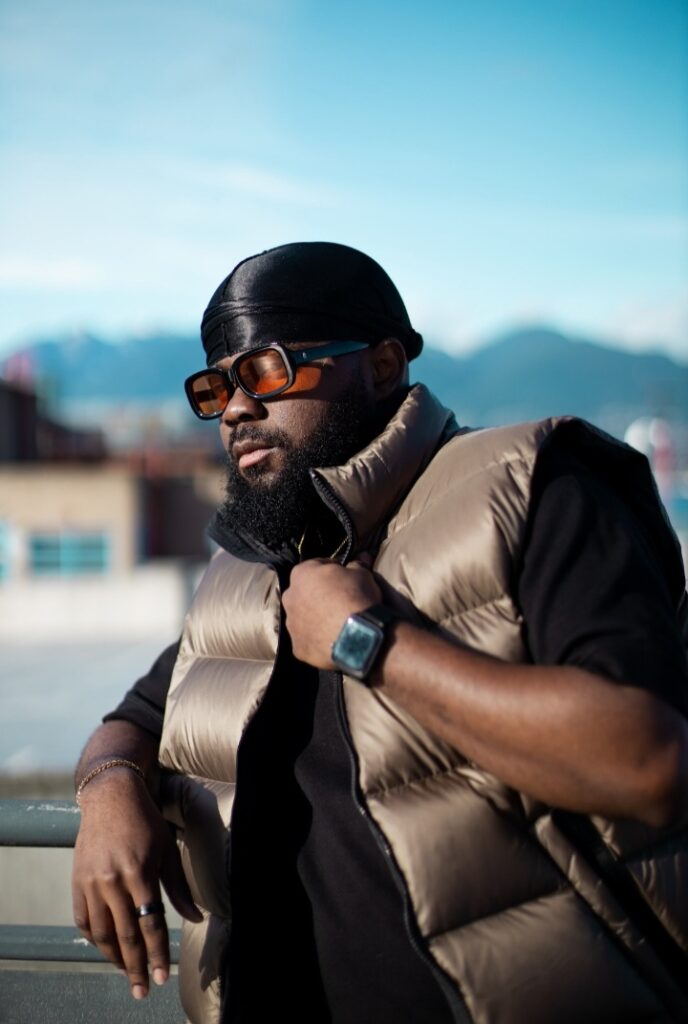
Lately, I’ve been gravitating more towards melodies. Both “ÓMÀSHE” and another track called “PAIN” from the album have boosted my confidence in my singing. Now, I’m excited to push myself further in this area and see where it leads. It’s an exciting time for my artistic growth!
A-T: Indeed it is, and we cannot wait to see how it plays out. Rerouting to your industry outlook, what do you think about the sentiment of Hip-Hop/Rap being a niche, undervalued genre in Nigeria?
FEMI JR: I think it’s a mistake to pit Hip-Hop/Rap in Nigeria against the Afrobeats/Afro-Pop/Afrofusion scene. Naturally, Afrobeats is the most popular genre in the country because it’s deeply rooted in our culture. Hip-Hop, on the other hand, is a borrowed culture. However, there is a mainstream audience for rap in Nigeria. Many rappers who have found ways to tell stories true to our roots have enjoyed mainstream success. Artistes like M.I, Naeto C, Ice Prince, Da Grin (RIP), Olamide, and Reminisce have all had significant runs during their peak years.
If M.I could blow up with Talk About It in 2008, despite rapping in a full-blown English accent, then the potential is even greater in 2024. What’s more disappointing is that some contemporary Nigerian rappers themselves perpetuate the idea that “Rap doesn’t sell in Nigeria.” It’s counterproductive to tell consumers that they won’t buy our product instead of finding ways to market it to them.
I understand the frustration that comes from not sharing in the Afrobeats’ scene’s success, but blaming a lack of success on Nigerians not liking Rap is an excuse. I know Nigerians love Rap, so it’s up to me to keep refining my approach and creating Rap songs that resonate with the Nigerian audience.
Lastly, some industry gatekeepers are also pushing this narrative. We need more investment in Nigerian Hip-Hop. There’s a long list of rappers who have achieved commercial success in the relatively short history of our scene. I believe there’s immense talent among current Nigerian rappers, and with proper backing, we can take this genre to a global level.
A-T: Well said, once again. Your debut album, “PEACE & LOVE” is slated for release this summer. With four EPs under your belt, what distinct flavour should listeners expect from your first LP?
FEMI JR: I found my sound on “PEACE & LOVE.” Working with Wavskinny over the past eightmonths, we’ve crafted some beautiful music that I can’t wait to share with everyone. In my previous EPs, avid listeners would tell you that I’ve always been great at rapping and telling relatable real-life stories, but the musical component was missing. Those EPs involved sifting through hundreds of beats online in search of inspiration, a challenge compounded by the inability to work with local producers due to lack of funds.
While I gained a small core following through these projects, it was clear that I needed more to take my craft to the next level. Enter Wavskinny, who feels like a Godsend. By working with him, I was able to bring many of my long-held musical ideas to life. He’s a genius, and I hope he gets his flowers soon.
On this album, I now have access to quality beats, and I’m doing the best rapping I’ve ever done. I’ve put a lot of work into my penmanship, and it’s really paid off. I’m rapping, singing, tackling real topics, making fun songs, and experimenting with various genres, all at a high level. The only genre not featured on the album is Amapiano, but I recently got a couple of Amapiano beats, so listeners should stay tuned.
Listeners should expect an all-around engaging musical experience from “PEACE & LOVE”.
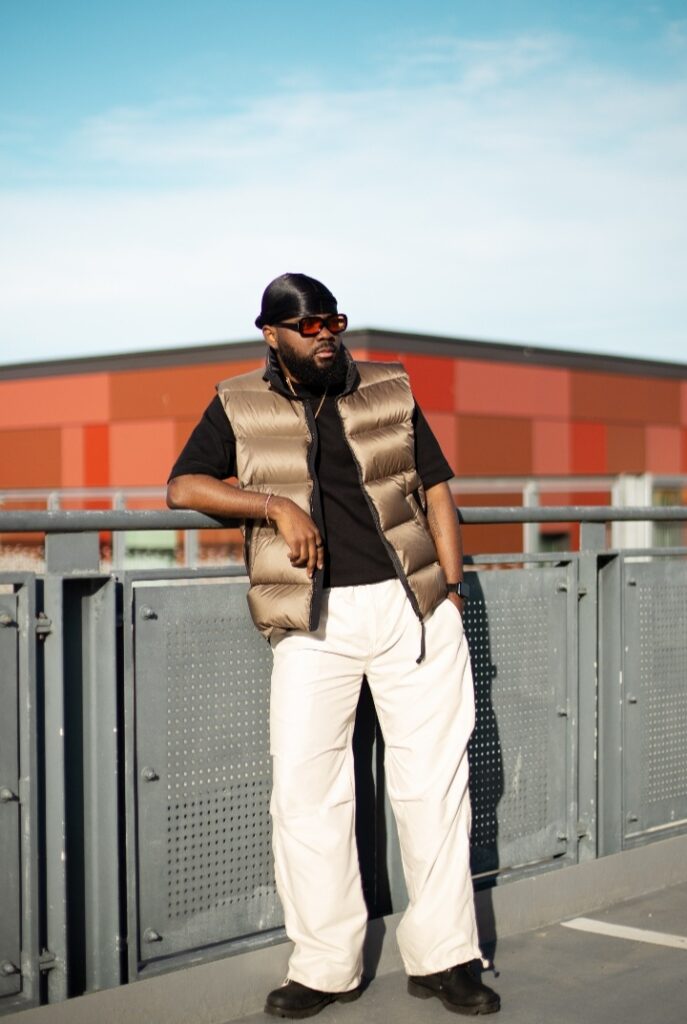
A-T: It’s safe to say that these are very exciting times for you. Beyond the genres you already mentioned, are there any more you intend to incorporate in your artistry?
FEMI JR: I feel like my last answer touched on this a bit, but moving forward, my next project, inspired by my Ibadan roots, will primarily focus on Afro-Drill. Artistically, I feel like I found a unique pocket with “ÓMÀSHE.” If, God willing, this track makes some noise, I might be inclined to release a 4-5 track Afro-Drill EP after “PEACE & LOVE.” Fingers crossed.
A-T: What final words do you have for your fans and listeners?
FEMI JR: To my fans and listeners, I want to express my deepest gratitude for your unwavering support and patience as I’ve worked on “PEACE & LOVE.” Your encouragement means the world to me, and I can’t wait for you to hear what we’ve created. There have been times when I’ve gone to bed feeling overwhelmed by my music endeavors, only to wake up to a DM from someone telling me to never stop. Moments like these give me renewed energy and are why I’ve been able to create this album. “PEACE & LOVE” represents a significant evolution in my artistry, and I’m thrilled to share this journey with you. Stay tuned, stay engaged, and keep spreading the love. The best is yet to come!
– This interview was conducted and written by Clinton Durueke, an Album Talks writer (X: @ClintCDurueke).


